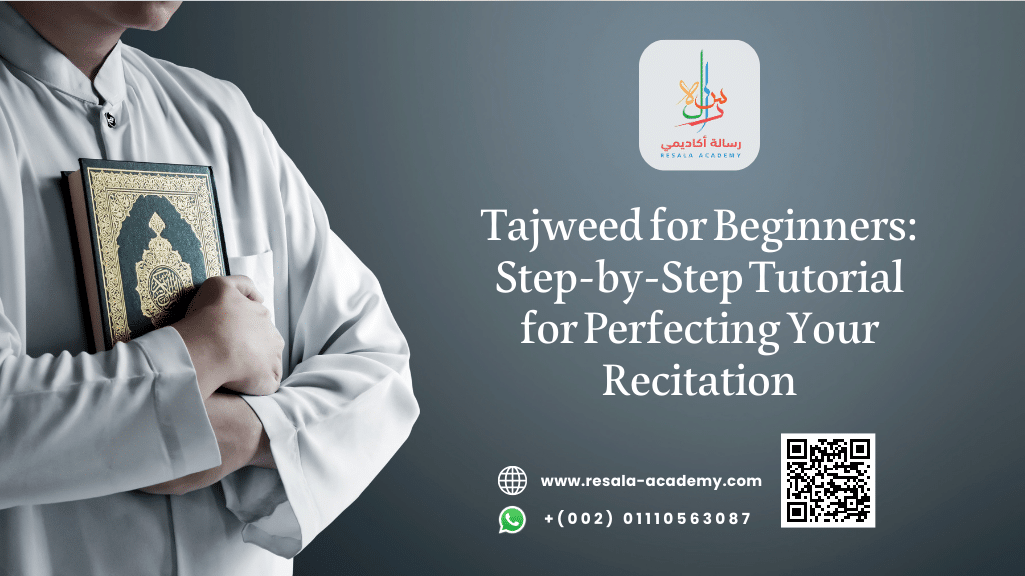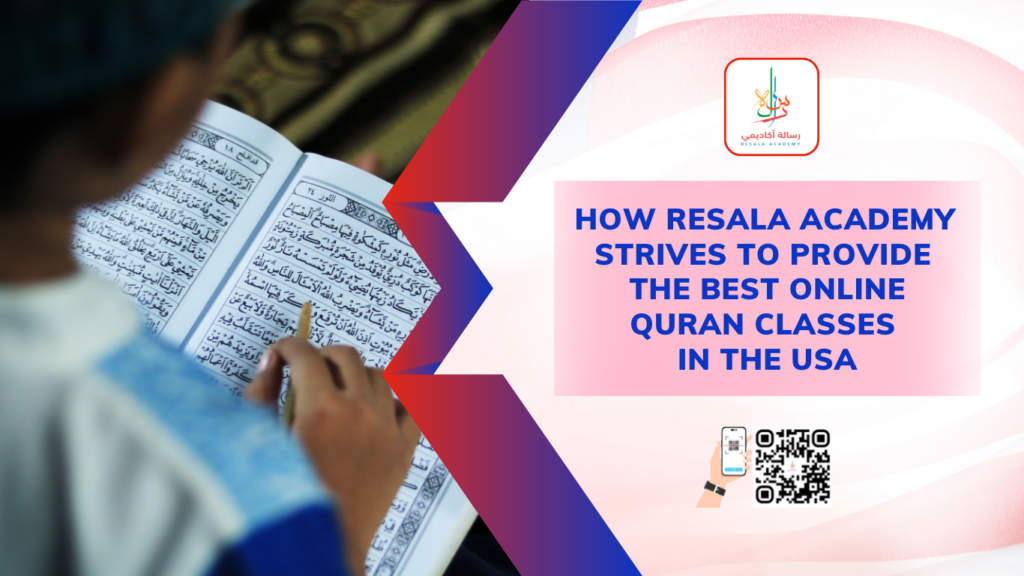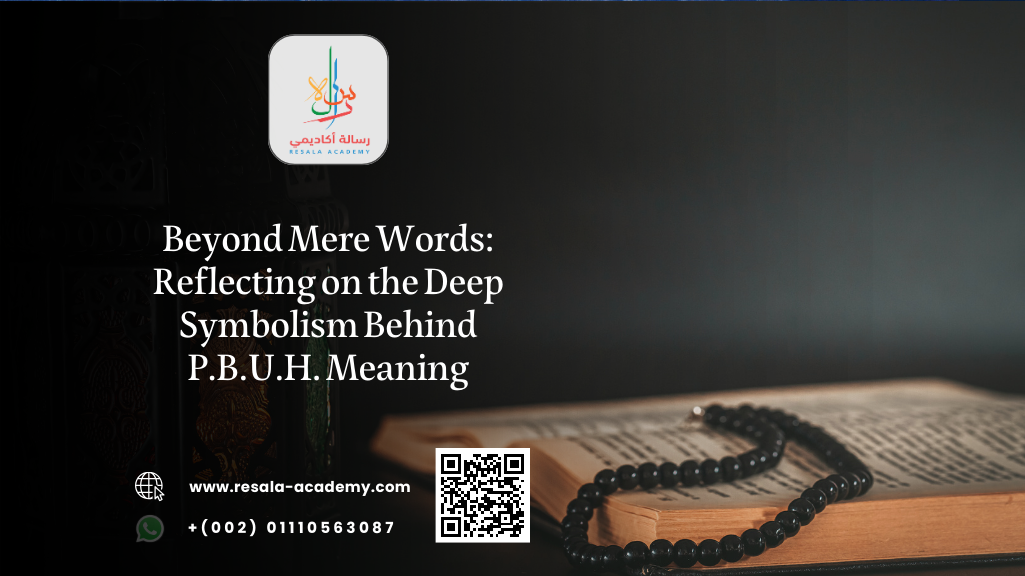Table of Contents
The Benefits of Learning Arabic and Islamic Studies in a Group Environment
Why Learning Arabic and Islamic Studies in a Group Environment is Beneficial?
- Improved Learning Outcomes: Working as part of a team to learn and master complex concepts can significantly improve learning outcomes and success rates. Collaborative learning has been proven to increase student motivation, promote a better understanding of topics, and allow for deeper engagement within the material.
- Deeper Understanding: When studying in a group, students can benefit from the varied perspectives of their peers. Group discussions are a great way for participants to explore complex topics and probe further into certain areas they don’t understand.
- Supportive Environment: One of the biggest benefits of learning in a group is the sense of community it creates. The fact that everyone is working together towards a common goal creates a supportive learning environment that is conducive to individual success.
- Increased Motivation: Working together in a team helps to keep everyone motivated and encourages discussion around topics of interest. Having knowledgeable peers on hand also acts as an incredible resource for those needing help understanding certain concepts more thoroughly.
- Fun Factor: Learning in a team can be fun! Working together to tackle puzzles, practice conversations, or understand new material can make the learning process much more enjoyable.
In conclusion, studying Arabic and Islamic Studies in a group environment has many advantages. It increases motivation, provides access to knowledge from different perspectives, and creates a supportive learning environment that encourages deeper engagement with the material. So, if you’re interested in exploring this field of study, why not consider joining or forming an Arabic studies and Islamic Studies group today? You’ll be sure to benefit from the unique advantages it has to offer!
How to Find Quality Resources for Learning Arabic and Islamic Studies as a Group
- Utilize online resources – There are many websites, forums, and other online resources available to help with learning Arabic and Islamic studies online as a group. Look for those that offer comprehensive material covering various topics such as grammar, history, religious law, literature, culture, and more. It is also important to be sure the material is from reliable sources, such as those approved by Islamic scholars.
- Contact your local mosque or religious center – Most mosques and other religious centers offer classes that focus on Arabic studies and Islamic studies. This is a great way to learn as a group and have access to knowledgeable instructors who can help with any questions you may have.
- 3. Join online learning communities – Social networks such as Facebook and Twitter can be great tools for finding like-minded people who are interested in learning Arabic and Islamic studies. Look for support groups, discussion forums, or other online communities that can provide you with resources and feedback.
- Take advantage of libraries – Libraries often have a wide selection of books and other materials related to Arabic and Islamic studies online. They also often have knowledgeable librarians who can help you find the resources that are best suited for your group’s needs.
- Reach out to experts – Depending on your location, there may be Arabic or Islamic scholars in your area who can provide valuable advice and guidance on learning Arabic and Islamic studies as a group. This can be a great way to get insight from knowledgeable individuals who have experience in the field.
- Utilize technology – There are several educational websites, apps, and other online tools available that can make it easier to study Arabic online and Islamic studies with your group. These can provide interactive lessons, quizzes, and other resources that can help to make the learning process more engaging and enjoyable.
By utilizing these various resources, you will be able to find quality materials for learning Arabic studies and Islamic studies as a group. With access to reliable sources of information, knowledgeable instructors, and interactive technology tools, your group can have a successful educational experience.
The Advantages of Having an Experienced Teacher When Learning Arabic and Islamic Studies with Others
When studying Arabic and Islamic studies online with an experienced teacher, there are several advantages. First, an experienced teacher can provide insight into the complex language of Arabic studies and its religious dimensions that may be difficult to access by solely reading a textbook or online resource. An experienced teacher can also explain concepts in detail, which makes it easier for learners to understand and remember the material. Additionally, an experienced teacher can help learners understand the importance of the language and cultural context in which Arabic and Islamic studies are studied.
Another advantage is that having an experienced teacher can provide a more interactive learning experience than is possible with online resources or textbooks alone. Experienced teachers can engage students in conversations about topics related to the subject matter, which can help learners gain a more complete understanding of the material. In addition, experienced teachers can offer personalized instruction tailored to individual student’s needs and learning styles. This helps ensure that every student can reach their highest potential when studying Arabic and Islamic studies online.
Finally, having an experienced teacher provides an opportunity for students to learn from someone passionate about their subject matter. This can be an invaluable resource as learners gain a deeper appreciation and understanding of the language, culture, and history to study Arabic online and Islamic studies. In addition, having an experienced teacher provides a support system that can help students stay motivated and on track with their coursework. This, in turn, can lead to increased academic success and a higher quality of learning.
These are just a few of the many advantages of having an experienced teacher when studying Arabic and Islamic studies with others. With the right teacher, students can gain valuable knowledge and insight into their subject matter, as well as the cultural context in which these studies are conducted. Ultimately, having an experienced teacher can make the learning process easier and more enjoyable for everyone involved.
Strategies for Supporting Each Other in the Group Setting for Learning Arabic and Islamic Studies
Group members can support each other in a variety of ways, such as:
- Creating a safe and welcoming environment by encouraging open dialogue and discussion.
- Learning from each other’s strengths and weaknesses to create an atmosphere of collaboration.
- Working together on projects or assignments that require a collective effort.
- Encouraging each other to ask questions and offer constructive criticism.
- Allowing space for everyone to have their say, and listen intently without judgment or criticism.
- Celebrating success together, whether individual or group accomplishments.
By taking these steps, members of the study groups can ensure that they will learn from one another and grow in their knowledge of Arabic and Islamic studies. This kind of support is invaluable for any group environment, and groups can be sure that they are getting the most out of their studies when they work together to create a supportive and nurturing atmosphere.
Ways to Enhance the Learning Experience by Incorporating Technology for Learning Arabic and Islamic Studies
- Use virtual reality (VR) to immerse students in the Islamic world, allowing them to explore different aspects of Arabic and Islamic studies such as culture, history, architecture, and more.
- Create interactive websites where students can access resources in Arabic and English for reference or practice.
- Utilize mobile apps and games to promote language and literacy skills, as well as cultural understanding.
- Develop online forums where students can ask questions regarding topics about the study of Arabic and Islamic studies.
- Encourage virtual field trips by providing students with access to videos and lecture recordings from universities or museums that focus on the topics of Arabic and Islamic studies.
- Utilize digital storytelling tools to help students create projects that demonstrate their understanding of complex topics in an engaging way.
- Employ video conferencing technology for collaborative learning activities between classrooms or connecting with native speakers to practice conversational skills in real time.
- Use augmented reality (AR) to enhance the learning experience by overlaying digital elements onto the physical environment of a classroom or museum.
- Incorporate online quizzes and assessments for students to evaluate their knowledge on specific topics.
- Develop interactive simulations that enable students to explore different scenarios and apply their knowledge in a hands-on way.
- Leverage cloud-based solutions to enable collaboration among remote learners from anywhere in the world.
- Utilize online chat platforms to facilitate dialogue around topics covered in class, or to connect with experts in the field of study.
- Create online libraries where users can access a wealth of resources about Arabic and Islamic studies, including books, videos, articles, and more.
- Develop virtual simulations to help students practice their language skills in real-world situations, such as ordering food at a restaurant or interacting with locals during travel.
- Leverage artificial intelligence (AI) to provide personalized learning content for each student in the class.
- Utilize adaptive learning tools to assess students’ understanding of concepts and adjust content accordingly.
- Implement data analytics tools to track student progress and measure the effectiveness of teaching strategies.
These are just a few of the ways technology can be used to enhance learning experiences for students to study Arabic online and Islamic studies. Technology has the potential to revolutionize education, making it more engaging, interactive, and accessible than ever before. With the right tools and strategies in place, educators can create immersive learning environments and foster meaningful connections between students and their studies.
With the right approach, educators can embrace technology to create an immersive learning experience for students studying Arabic and Islamic studies. Technology has the potential to revolutionize education, making it more engaging, interactive, and accessible than ever before. With the right tools and strategies in place, teachers can transform their classrooms into dynamic learning environments that empower their students.
Tips for Encouraging Collaboration and Engagement in Group Arabic and Islamic Studies Learning
- Establish a safe and respectful space for all learners: A collaborative learning environment is only effective if it is an open and welcoming one. It’s important to create a learning zone where people feel encouraged to share ideas, ask questions, and take risks without fear of judgment or criticism.
- Create clear group expectations: Make sure everyone knows the rules and boundaries of the learning group before beginning any activities. This will help set a tone of mutual respect and understanding, which will foster collaboration.
- Use active learning techniques: Active learning involves engaging students in meaningful ways that involve critical thinking and analysis. Utilizing different strategies such as role-playing, case studies, debates, and discussion groups can be highly effective in helping students learn together.
- Encourage meaningful dialogue: Create an environment where all participants feel comfortable speaking up and engaging with one another. It’s important to listen to everyone’s ideas and validate their learning experiences.
- Vary activities to keep learners engaged: Utilizing a variety of activities will help maintain everyone’s interest and energy. Use interactive games, lectures, videos, and other techniques to ensure that the learning experience remains interesting and enjoyable for all group members.
- Provide opportunities for reflection: Learning should be an ongoing dialogue between the teacher and the students. Make sure to provide time for reflection on each activity so that everyone can benefit from their learning experience.
- Celebrate successes: Recognizing and celebrating each group member’s achievements will help create a more positive and encouraging atmosphere. This can also serve as an incentive for others to strive toward excellence.
- Offer feedback: Encourage learners to provide constructive feedback to each other to improve their learning experience. Help them understand the importance of giving and receiving meaningful feedback so that they can become better independent learners.
- Assign leadership roles: Providing different leadership roles within the group will help build team dynamics and promote collaborative learning. It can also provide opportunities for individuals to develop their leadership skills.
- Have fun: Learning can and should be enjoyable! Make sure to have some fun activities or breaks during the study session to keep everyone enthusiastic about learning. Having fun can also help boost morale and make the learning experience more memorable.
These tips will help to create a collaborative and engaging environment for group Arabic and Islamic studies learning. By providing a safe and respectful space, encouraging meaningful dialogue, varying activities, and celebrating successes, learners will feel more comfortable and confident in their learning experiences. Ultimately, this can lead to greater engagement and better outcomes for all.
Benefits of Forming a Lasting Relationship with Other Learners While Studying Arabic and Islamic Studies Together
Forming a lasting relationship with other learners while studying together will help to:
- Enhance motivation and engagement in the learning process, as students have someone to discuss ideas with and form meaningful relationships.
- Develop a sense of community and camaraderie among Arabic and Islamic studies students.
- Provide a safe and open environment for students to ask questions, provide feedback, and learn from each other.
- Promote social interaction among students and allow them to share their knowledge in an informal setting.
- Increase collaboration among learners, allowing them to work together to better understand concepts and develop ideas further. 6. Provide opportunities to practice the language, particularly when discussing topics of interest or relevance to their studies.
- Foster cultural appreciation and understanding of different perspectives.
- Allow students to gain a deeper understanding of the subject material by exploring it from multiple angles.
- Give students a platform for meaningful dialogue and exchange of ideas.
- Encourage critical thinking and creative problem-solving.
Overall, forming a lasting relationship with other learners while studying Arabic and Islamic studies together can be a powerful tool to foster learning and understanding. It provides an invaluable opportunity for students to engage in meaningful dialogue, share knowledge, practice the language, develop a sense of community, and gain a deeper understanding of the material. It is an essential part of any Arabic and Islamic studies program.
Resala Academy offers professional Arabic and Islamic classes
Resala Academy offers professional Arabic and Islamic classes for learners of all levels, from beginners to advanced. Our experienced and knowledgeable instructors are well-versed in both classical and modern Arabic literature. We offer courses in a variety of topics including grammar, Quranic studies, Tafseer (interpretation), hadith (traditions), Seerah (biography of the Prophet Muhammad ﷺ), and more. Our classes are designed to be interactive and engaging, encouraging students to ask questions and discuss topics with their peers. We also offer private tutoring for those who need extra help or want to focus on specific areas of study.
At Resala Academy, we believe in the importance of forming meaningful relationships while learning. Our classes emphasize collaboration and active engagement, creating an environment where students can share ideas, ask questions, and gain a better understanding of the material. We strive to provide our learners with the knowledge and skills they need to become competent speakers of Arabic and experts in Islamic studies. Come join us and experience the power of learning together.
FAQ
Q: What are the benefits of studying Arabic and Islamic studies together?
A: There are many benefits to studying Arabic and Islamic studies together. These include enhanced motivation, increased collaboration, greater understanding of the material, opportunities for language practice, cultural appreciation, and meaningful dialogue.
Q: What is the best way to encourage collaboration and engagement in a group Arabic and Islamic studies learning environment?
A: The best way to encourage collaboration and engagement in a group Arabic and Islamic studies learning environment is by creating a safe and respectful space, using active learning techniques, encouraging meaningful dialogue, varying activities, providing opportunities for reflection, celebrating successes, offering feedback, assigning leadership roles, and having some fun. All these strategies will help to create a more engaging and collaborative learning experience for all involved.
Q: How can leadership roles be beneficial in group Arabic and Islamic studies learning?
A: Assigning leadership roles can be beneficial in group Arabic and Islamic studies learning by providing opportunities for each individual to develop their leadership skills. It can also help to build team dynamics and promote collaborative learning within the group. Ultimately, this can lead to a more positive and effective learning experience for all.
Q: How can I make the learning experience more enjoyable and memorable?
A: Making the learning experience more enjoyable and memorable can be achieved by including some fun activities or breaks during the study session. This will help to boost morale and make the learning experience more engaging. Additionally, it is important to celebrate successes and provide feedback on activities so that everyone can benefit from their learning experience. This will help to create a positive and encouraging atmosphere.
Q: What courses do you offer at Resala Academy?
A: We offer courses in a variety of topics including grammar, Quranic studies, Tafseer (interpretation), Hadith (traditions), and Seerah (biography of the Prophet Muhammad ﷺ). We also offer private tutoring for those who need extra help or want to focus on specific areas.
Q: How can I get involved?
A: We invite you to join us and experience the power of learning together. You can visit our website to find out about our courses and enroll today! We look forward to having you join us in this journey of learning Arabic and Islamic studies. If you have any questions, please don’t hesitate to contact us. We’re here to help! Thank you for your interest in our Arabic and Islamic studies program at Resala Academy!
Conclusion
Learning Arabic and Islamic studies in a group environment can be a great way to deepen your understanding of the content. Not only can an experienced teacher alleviate the burden of researching quality resources and providing instruction during weekly courses, but they can also help to facilitate collaboration amongst learners. Techniques like round table discussions and utilizing technology as an educational tool can go a long way in encouraging participation and engagement during group lessons which enhance overall comprehension. Additionally, forming long-term relationships with other participants is highly beneficial as it provides an opportunity to gain perspectives from other learners. As such, if you are looking for an opportunity to learn more about Arabic and Islamic studies in a supportive atmosphere, Resala Academy offers professional courses by qualified instructors that provide all these amazing benefits for their students.




